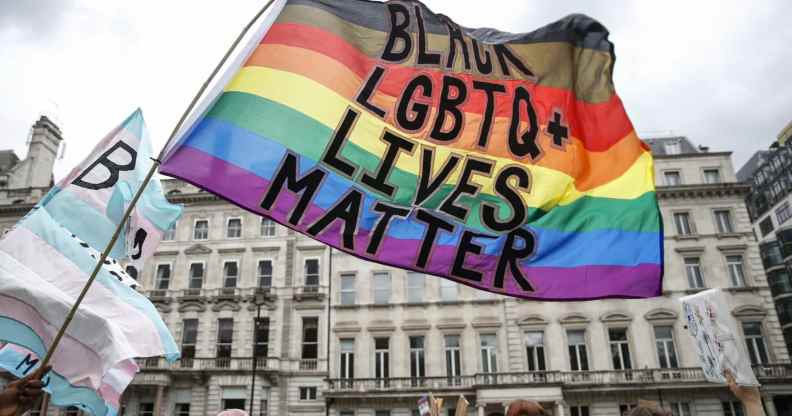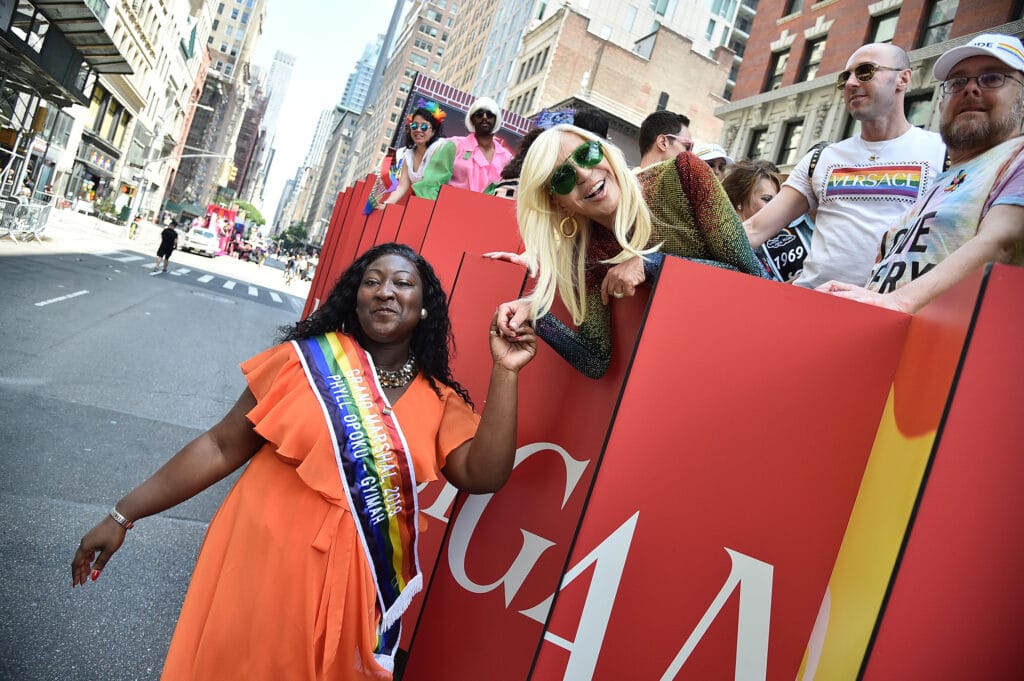One in three queer people of colour experience racism in LGBT+ spaces, landmark study finds

(Getty/Hollie Adams)
A groundbreaking new study has found that queer people of colour (POC) in the UK feel unwelcome in LGBT+ spaces, with many experiencing discrimination, harassment, and abuse.
The report was conducted by UK Black Pride, which runs Europe’s largest Pride event for queer people of African, Asian, Caribbean, Latin American and Middle Eastern descent. It surveyed 1,464 people from around the UK on the topics of mental health, discrimination, communities, public safety and more.
The survey found that almost half of respondents (47 per cent) have been insulted, pestered, intimidated or harassed in person in the past 12 months. Of respondents who had experienced violence or harassment, 56 per cent felt that it had been motivated by their race or ethnicity, while 47 per cent felt that it had been motivated by sexuality.
Apparent efforts for more diverse and welcoming spaces since 2020’s Black Lives Matter (BLM) protests seem to have fallen short, as a majority of people of colour surveyed said that they do not feel welcome in LGBT+ spaces.
The We Will Be Heard study found that only 25 per cent of respondents felt that their local LGBT+ spaces were welcoming for Black people and POC, with one-third (33 per cent) of respondents reporting that they had experienced discrimination or harassment in LGBT+ spaces based on their race or ethnic origin.
In contrast, 67 per cent of white LGBT+ people, surveyed by LGBT in Britain, found their local LGBT+ community welcoming.
https://www.instagram.com/p/CPGlcZxhZTc/
One respondent to the survey said: “I know for some Black and POC queer people, UK Black Pride is sometimes the one time of the year where you can breathe and unclench.
“So to have multiple events or support spaces, or groups or something happening across the year would be amazing.”
Another cited a recent report of racism and bullying within Pride in London as an example of why they do not feel welcome in LGBT+ spaces.
“The Pride in London racism scandal and BLM movement highlighted the constant disregard and exclusion of Black LGBTQIA+ people from liberation movements,” the anonymous respondent said.
“This has had a negative impact on my mental health because it is a constant reminder that LGBTQIA+ lives do not matter to people, and we are constantly othered in society.
“It gets me down and angry because we deserve a lot more.”
The inaugural study by UK Black Pride is a response to the government’s 2017 National LGBT Survey and the 2021 Sewell Report, neither of which looked into the experiences of queer Black people and POC specifically, or the intersections of race and sexuality.

Lady Phyll and Donatella Versace at WorldPride NYC 2019 (Theo Wargo/Getty Images)
Lady Phyll, co-founder and executive director of UK Black Pride, said: “I know first hand the racism and discrimination faced by LGBTQI+ Black people and people of colour in the UK.
“16 years ago, UK Black Pride was founded to create a much-needed space for our communities to escape and to breathe, to celebrate who we are, where we come from, and the cultures we represent and love.
“As much as we’d like to live in a world that celebrates and loves us, too, we don’t – and I am absolutely heartbroken to read how LGBTQI+ Black people and people of colour are treated.”
The report, however, did highlight the importance of community and belonging within the LGBT+ community for POC, with 12 per cent emphasising that a community that is accepting and inclusive “sparks joy”.
One study respondent explained that the “kaleidoscope of vibrant beauty of our community” meant a lot to them.
“The fact that more of us are telling our stories and becoming more visible. The sense of belonging,” they said.
Lady Phyll added: “The findings presented in our inaugural survey offer much to be considered, for us as UK Black Pride and for those who care at all about how LGBTQI+ Black people and people of colour are treated.
“Each of us deserves respect, safety and acceptance. Each of us deserves to have our experiences counted and to inform the provision of services…
“Our hope is that other organisations will join us in committing to addressing and redressing some of the disparities made clear here.”

